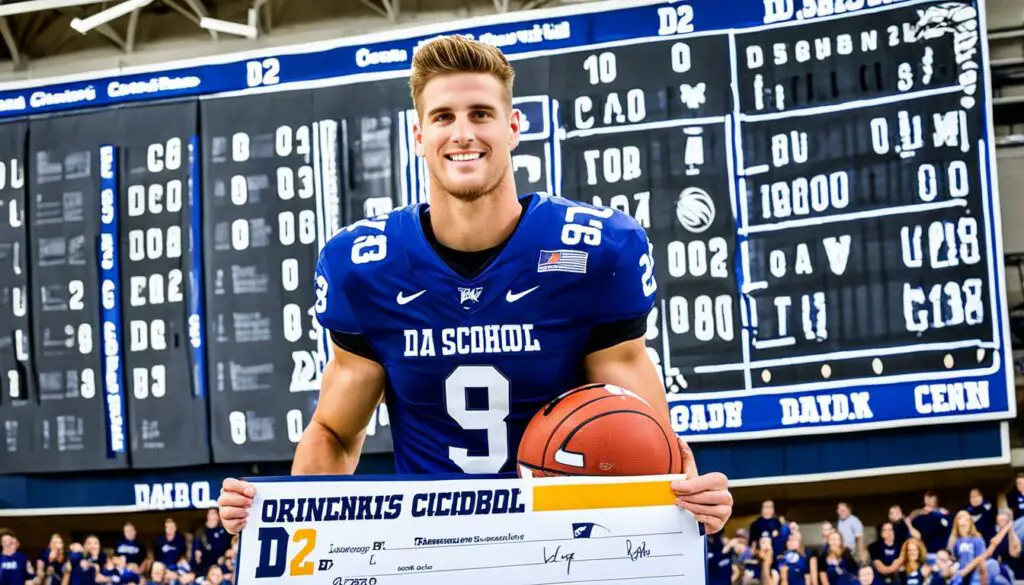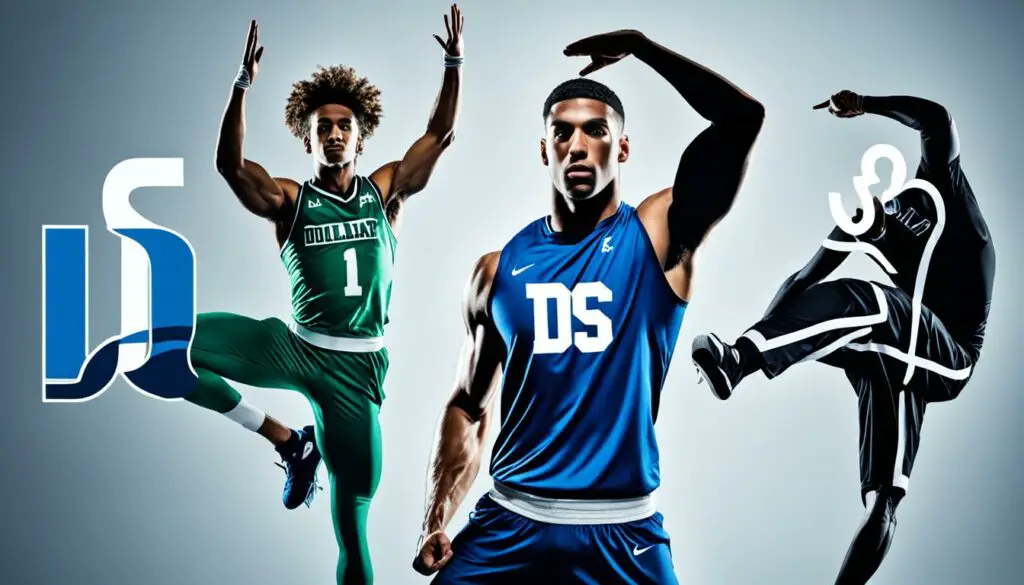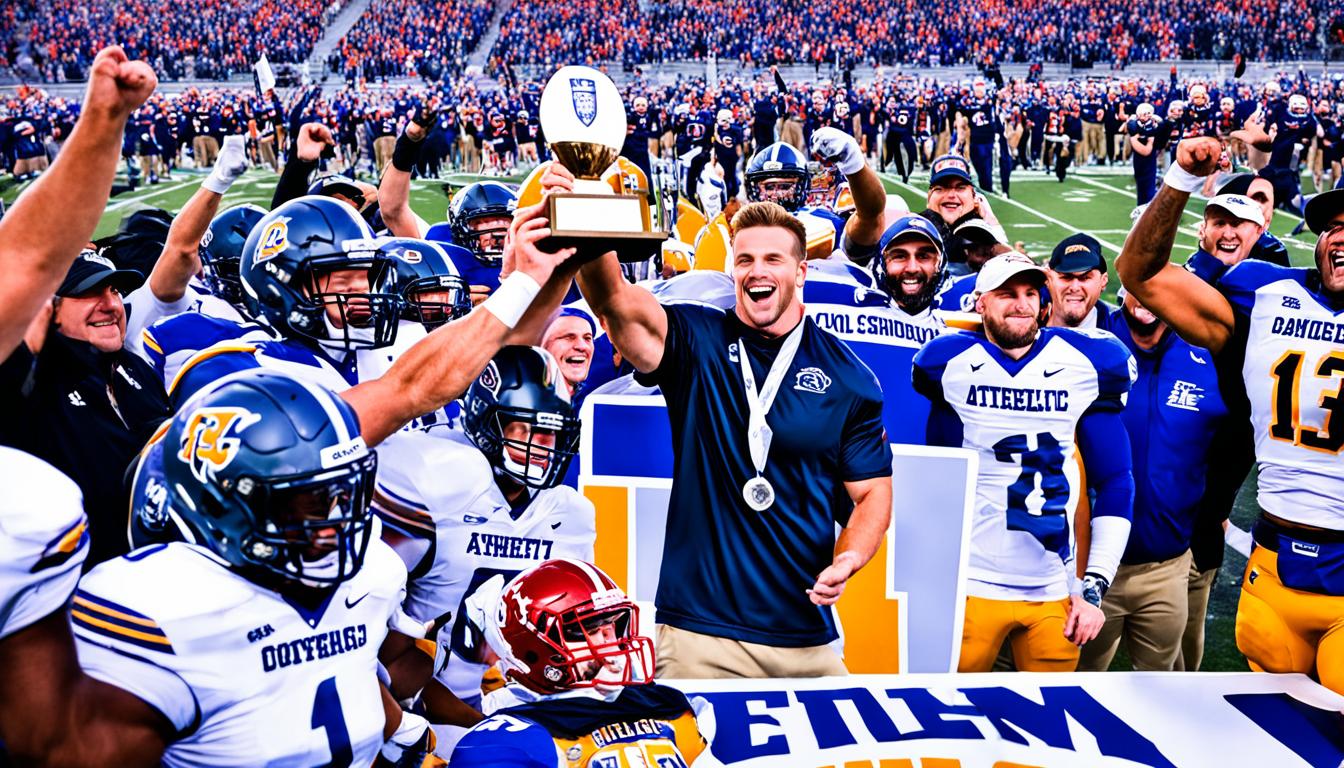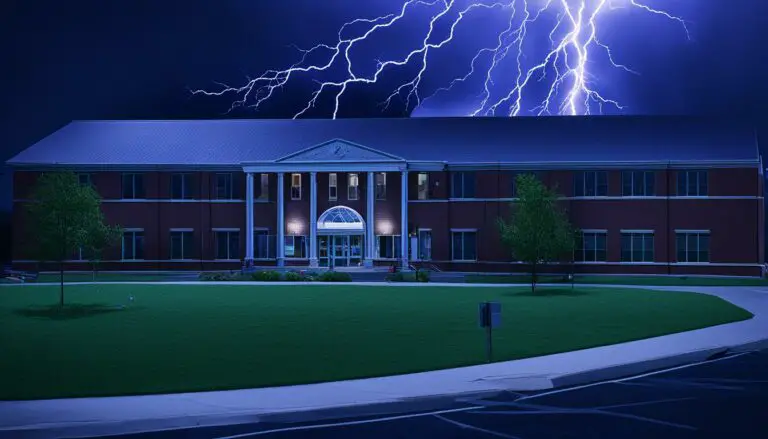Do D2 Schools Give Athletic Scholarships? Fact Check
Scholarships are often considered a crucial part of recruiting for college athletics. But what about NCAA Division 2 (D2) schools? Do they offer athletic scholarships to their student-athletes?
The answer might surprise you. Contrary to popular belief, although full scholarships are rare, D2 schools do provide athletic scholarships. So, how do these scholarships work? What are the eligibility requirements? And what types of scholarships are available?
This article will explore the world of athletic scholarships at D2 schools and debunk some common misconceptions. Whether you’re a student-athlete aspiring to compete at the college level or a parent curious about financial aid options, read on to discover the truth about D2 athletic scholarships.
Types of Athletic Scholarships at D2 Schools
D2 schools offer various athletic scholarships to student-athletes, providing financial aid to support their education and sports participation. These scholarships can be categorized into two main types: full and partial.
Full Scholarships:
A full athletic scholarship at a D2 school covers the entire cost of attendance, including tuition, fees, books, room, board, and sometimes additional living expenses. However, it’s important to note that full scholarships at the D2 level are rare and usually limited to exceptional athletes in high-profile sports.
Partial Scholarships:
Most athletic scholarships at the D2 level are partial, which cover only a portion of the costs associated with college. These scholarships can vary in the percentage of expenses they cover, and the specific items covered may differ among different schools and sports programs.
The amount of scholarship money received by student-athletes is determined by various factors, including:
- The sport: Some sports may have more scholarship funds available than others, depending on factors such as revenue generation and program priorities.
- Academic performance: Student-athletes with strong academic records may be eligible for additional scholarship funds or academic scholarships that can supplement their athletic scholarships.
- Financial need: Students with demonstrated financial need may receive additional financial aid that can help cover the remaining costs of attending a D2 school.
- Coach’s decision: Ultimately, the coach’s discretion determines how scholarship funds are distributed among athletes. The coach may consider factors such as talent, potential, and fit within the team’s needs.
D2 schools typically use an equivalency model to divide their scholarship funds among student-athletes. This model allows coaches to distribute scholarship money to multiple athletes, ensuring that each athletic program remains within the scholarship limits set by the NCAA.
| Scholarship Type | Description |
|---|---|
| Full Scholarships | Rare scholarships that cover the entire cost of attendance, including tuition, fees, books, room, board, and sometimes living expenses. |
| Partial Scholarships | These are more common scholarships that cover a portion of college expenses, such as tuition, fees, books, room, and board. |
Eligibility for D2 Athletic Scholarships
Student-athletes aspiring to receive D2 athletic scholarships must meet specific criteria to be eligible for consideration.
🌟 Hey Students! 🚀 Ready for the ultimate experience? Join us on Studentsinside.com's Facebook, YouTube, WhatsApp, and LinkedIn. Click now for tips, fun, and success vibes! 🌈✨ #StudentLife #JoinUs
In addition to demonstrating athletic prowess, maintaining a minimum academic standard is crucial in securing a D2 athletic scholarship. To meet these requirements, student-athletes should focus on the following:
Academic Requirements
Academic requirements for D2 athletic scholarships typically include maintaining a minimum Grade Point Average (GPA) and completing a specific number of core courses. These standards ensure that student-athletes are successful on the field and prioritize their education.
Here are some key academic requirements for D2 athletic scholarships:
- Minimum GPA: D2 schools often establish a minimum GPA requirement that student-athletes must maintain to be eligible for athletic scholarships. This minimum GPA may vary depending on the school, sport, or specific athletic program.
- Core Course Completion: Student-athletes must complete a set number of core courses to be eligible for D2 athletic scholarships. These core courses are core curriculum subjects, such as English, math, science, and social studies.
Amateur Athlete Status
Student-athletes pursuing D2 athletic scholarships must maintain their status as amateur athletes. This means they cannot have been compensated or accepted payment for their athletic participation. Maintaining amateur status ensures fairness and compliance with NCAA regulations.
Student-athletes should be aware of the following aspects related to amateur athlete status:
- No Payment for Athletic Participation: To remain eligible for D2 athletic scholarships, student-athletes must refrain from accepting payment, endorsements, or any form of compensation related to their athletic performance. This includes not signing professional contracts or receiving financial benefits.
- Compliance with NCAA Regulations: Student-athletes must adhere to NCAA guidelines regarding amateurism and report any potential violations to their school’s compliance office.
Eligibility Requirements for D2 Athletic Scholarships
| Eligibility Criteria | Description |
|---|---|
| Minimum GPA | A student-athlete must maintain a minimum GPA, usually established by the D2 school or athletic program. |
| Core Course Completion | Student-athletes must complete a specific number of core courses, typically core curriculum subjects. |
| Amateur Athlete Status | Student-athletes must maintain their amateur athlete status, refraining from accepting payment or compensation for their athletic participation. |

Differences Between D2 and D1 Athletic Scholarships
When considering athletic scholarships, it’s essential to understand the differences between Division 2 (D2) and Division 1 (D1) schools. These differences can impact the type and amount of financial aid available to student-athletes.
Full Ride Scholarships
One major distinction is the prevalence of full-ride scholarships at D1 schools compared to D2 schools. D1 schools often offer more full-ride scholarships, which cover tuition, fees, room, board, and other expenses.
On the other hand, full-ride scholarships at D2 schools are generally less common, with partial scholarships being more prevalent. This means that D2 student-athletes may need to seek additional sources of funding to cover the remaining costs of their education.
Scholarship Limits
Scholarship limits also differ between D1 and D2 schools. D1 schools have no limits on the number of scholarships they can offer, allowing them to recruit and award scholarships to a larger pool of athletes.
In contrast, D2 schools have scholarship limits set by the NCAA, which vary by sport. These limits can impact the number of scholarships available and the amount of funding that can be allocated to individual athletes.
Recruiting Budgets
Another notable difference is the size of recruiting budgets at D1 and D2 schools. D1 schools tend to have larger budgets, enabling them to recruit athletes actively from a wider geographical area.
This broader reach allows D1 schools to attract talent from across the country and even internationally. In contrast, D2 schools often focus on local and regional talent due to their smaller recruiting budgets.
| D1 | D2 | |
|---|---|---|
| Full Ride Scholarships | More common | Less common |
| Scholarship Limits | No limits | Vary by sport |
| Recruiting Budgets | Larger | Smaller |

Tips for Earning a D2 Athletic Scholarship
To increase the chances of earning a D2 athletic scholarship, student-athletes should follow these valuable tips:
1. Develop Skills for D2 Athletics: Dedicate time and effort to improve your athletic abilities continuously. Train consistently, seek guidance from coaches and trainers, and focus on enhancing your sport-specific skills.
2. Attend Camps and Showcases: Participate in camps and showcases specific to your sport. These events provide an opportunity to showcase your talents to college coaches who may be scouting for potential recruits. Make sure to perform at your best and leave a lasting impression.
3. Build Relationships with Coaches: Take the initiative to establish meaningful connections with coaches at D2 schools. Attend their games or matches, communicate with them via email or phone, and express genuine interest in their programs. Building strong relationships with coaches can enhance your visibility and increase your chances of receiving a scholarship offer.
4. Research Scholarship Opportunities: Stay informed about scholarship opportunities provided by D2 schools. Each sport may have specific scholarship limits, so understanding these regulations can help you focus your efforts on schools that offer a higher number of scholarships in your particular sport. Utilize online resources, contact athletic departments, and explore scholarship databases to uncover potential funding opportunities.
FAQ
Q: Do D2 schools give athletic scholarships?
A: Yes, although full scholarships are rare, D2 schools offer athletic scholarships. Most scholarships at the D2 level are partial scholarships.
Q: What types of athletic scholarships are available at D2 schools?
A: D2 schools offer both full and partial athletic scholarships. Full athletic scholarships are rare and usually last for one year, while most are partial and cover some of the costs for tuition, fees, books, room, board, and sometimes living expenses.
Q: What are the eligibility requirements for D2 athletic scholarships?
A: Student-athletes must meet specific eligibility requirements to qualify for D2 athletic scholarships. These requirements include maintaining a minimum academic standard and being considered an amateur athlete.
Q: What are the differences between D2 and D1 athletic scholarships?
A: D2 schools generally offer fewer full-ride scholarships than D1 schools, with partial scholarships being more common. D2 schools also have scholarship limits set by the NCAA, while D1 schools have no limits. D2 schools often focus on local and regional talent, while D1 schools have larger recruiting budgets and can recruit athletes from a wider area.
Q: What tips can help me earn a D2 athletic scholarship?
A: To increase your chances of earning a D2 athletic scholarship, focus on developing your skills, participating in camps and showcases, building relationships with coaches, researching scholarship opportunities, and balancing academics and athletics.








